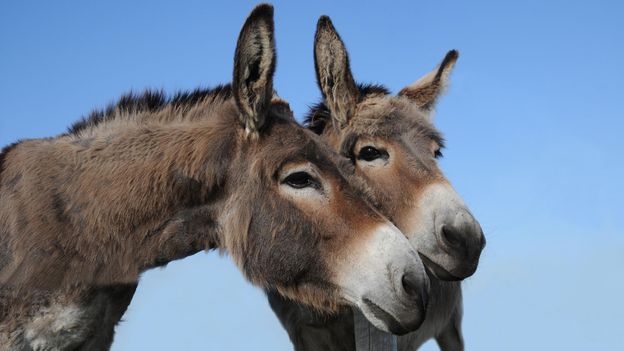“We believe due to the climatic changes, the local [human] populations had to adapt,” says Orlando. “In donkeys, they could leverage an essential service of transporting large amounts of load over long distances and difficult landscapes.”
They noticed that the donkey population also appears to have undergone a dramatic decrease in population size after it was initially domesticated, before sharply increasing again. “This is something typical of domestication and seen in almost every domesticated species at a point in time,” says Evelyn Todd, a population geneticist at the Centre for Anthropobiology and Genomics of Toulouse, who was also involved in the study.
The decrease is the result of selecting a specific stock of donkeys for domestication and later breeding it purposely, which contributed to their sharp increase.
Their analysis suggests that donkeys then appear to have radiated out from East Africa, being traded northwest to Sudan and onwards into Egypt, where the remains of donkeys have been found at archaeological sites dating back up to 6,500 years ago. Over the following 2,500 years, this new domesticated species spread throughout Europe and Asia, developing the lineages that are found today.
According to archaeologist Laerke Recht at the University of Graz in Austria, donkeys made a huge difference in humanity’s ability to transport goods over long distances by land due to the animals’ endurance and ability to carry heavy burdens.
“While rivers such as the Euphrates and Tigris in Mesopotamia and the Nile in Egypt could be used for transport of heavy and/or bulk goods, donkeys meant a massive increase and intensification of contacts over land,” she says.
Recht says this coincided with the increasing use of bronze during in the third millennium BC. “Donkeys could carry the heavy copper over long distances and into areas where it could not be found naturally (or only in very small amounts), including Mesopotamia,” she says.





